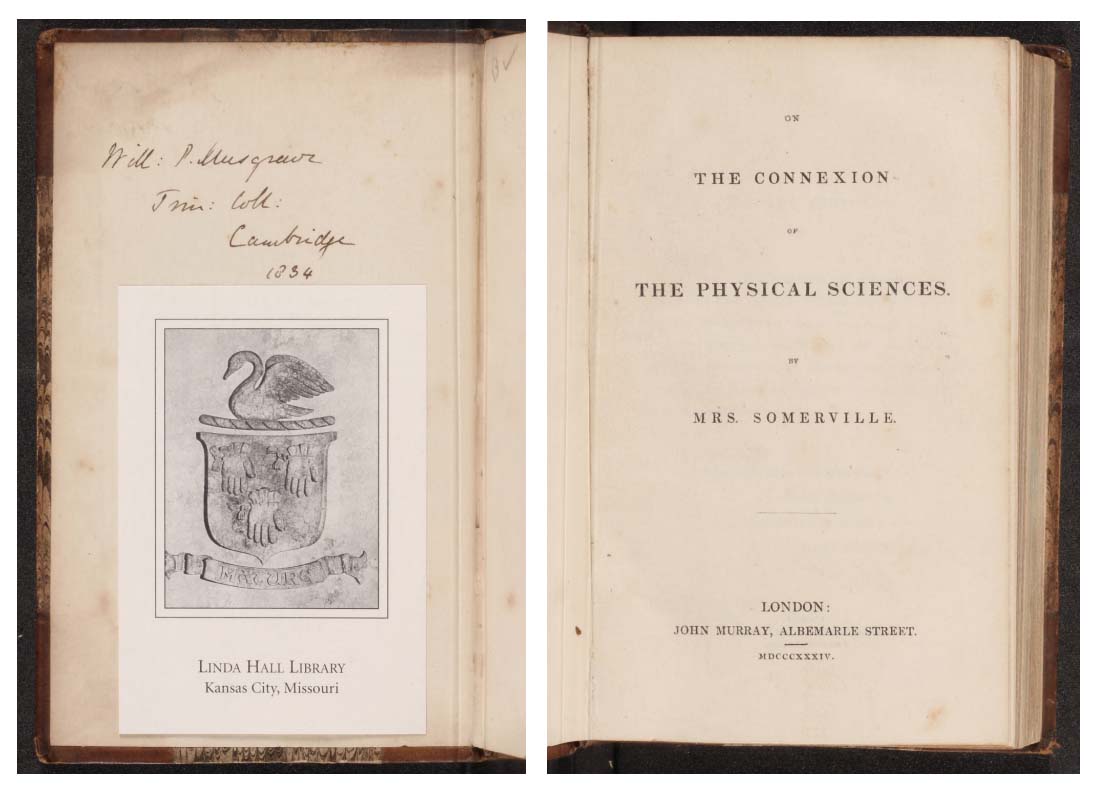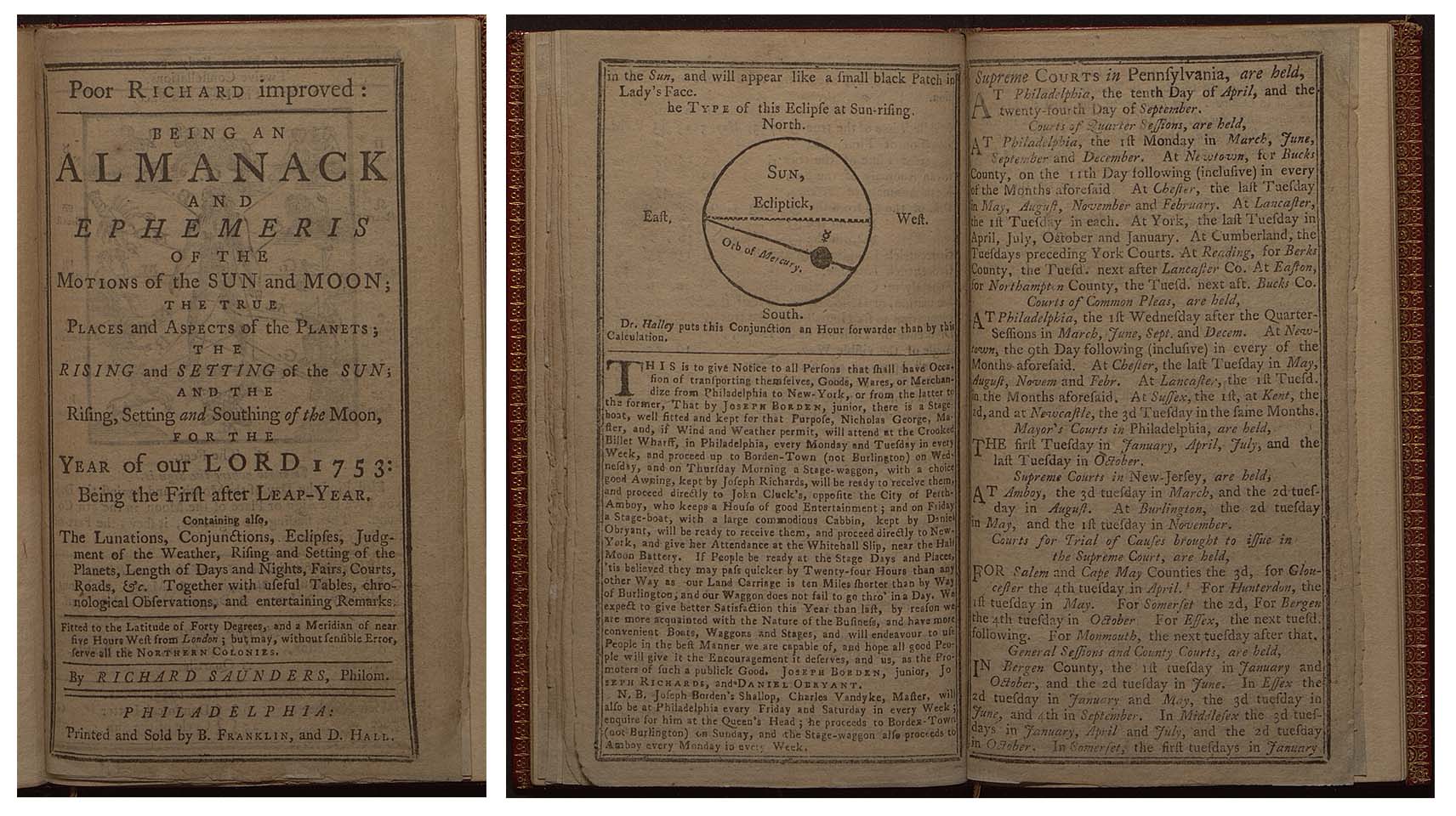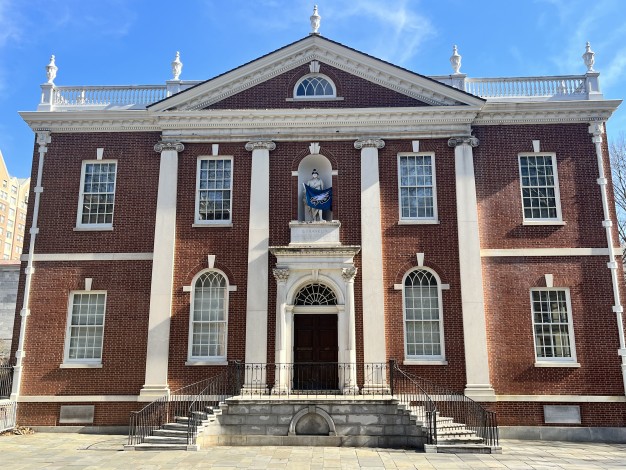APS and Linda Hall Library Have Super Bowl Bet Down to a Science
The American Philosophical Society’s Library & Museum and Linda Hall Library have bet on their respective home teams to win the Super Bowl – and the losing institution will have to loan an item from their world-renowned history of science collections to the winner.
The Super Bowl LVII matchup inspired a wager between Patrick Spero, Librarian of the American Philosophical Society (APS) in Philadelphia, and Lisa M. Browar, President of Linda Hall Library. Both institutions have long histories dedicated to the promotion of science, learning, and technological innovation.
The APS, the oldest learned society in North America, was founded in 1743 by Benjamin Franklin, famous for his electrical experiments among other innovations. Its Library & Museum’s history of science collections range from Newton to NASA, including the papers of seven Nobel Laureates. Linda Hall Library was founded in 1946 by Herbert and Linda Hall, and is one of the world’s preeminent libraries devoted to science, engineering, and technology. LHL’s collections comprise over one million books, journals, conference proceedings, and industrial standards. Included in the collection are landmarks of western science, such as a presentation copy of Galileo’s Sidereus Nuncius, as well as works by Caroline Herschel, Ada Lovelace, Marie Curie, Katherine Johnson, and Ben Barres.
When the Eagles emerge victorious, the Linda Hall Library will loan APS its first edition of Mary Somerville’s On the Connexion of the Physical Sciences (1834) for inclusion in their 2023 exhibition Pursuit and Persistence: 300 Years of Women in Science. This book was a 19th-century popular science bestseller that discussed physics, chemistry, astronomy, electricity, and more. Its author, Scottish writer Mary Somerville was called “the Queen of Science” for her skill in explaining complex ideas.

In the unlikely event that the Chiefs are triumphant, then the APS will loan one of Benjamin Franklin’s pseudonymously-authored Poor Richard’s Almanacks from its extensive collection for display in Kansas City at Linda Hall Library. Franklin’s Almanacks were immensely popular pamphlets that shared useful information for their readers like the calendar, weather, poems, astronomical information, and other inventions. The 1753 edition proposed for the bet referenced the transit of Mercury, which would be displayed in Linda Hall’s east exhibition gallery, along with a selection of works by American scientists, including APS founder Benjamin Franklin, APS Member Thomas Jefferson, as well as the Conchology of Thomas and Lucy Say. Also on display will be a ciphering manuscript by John R. Carpenter, who observed and calculated the totality of a lunar eclipse in Philadelphia on the 22 of September, 1820.

“This is an exciting way to increase the Super Bowl stakes while highlighting the important collections of our Philadelphia colleagues at the American Philosophical Society,” said Linda Hall Library President, Lisa Browar. “We look forward to a Chiefs' victory over the Eagles and the opportunity to host Benjamin Franklin's famous almanac in Kansas City!”
“The APS has been promoting useful knowledge in Philadelphia for 280 years, and we look forward to displaying Somerville’s work in our women in science exhibition when the Eagles win,” said Mary Grace Wahl, APS’s Associate Director of Collections and Exhibitions, closing with, “Go Birds!”
Fans are betting that Super Bowl LVII will be electric. APS’s and Linda Hall’s history of science collections will continue to spark the spirit of investigation and discovery.

